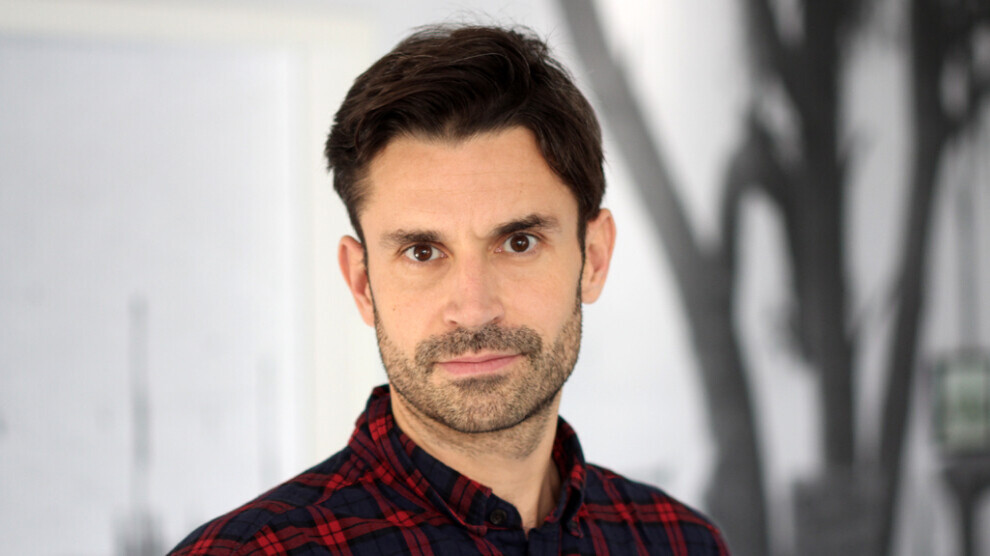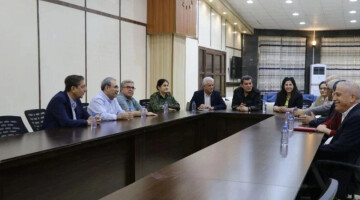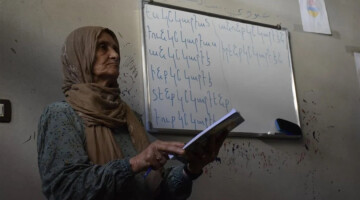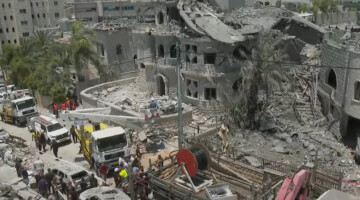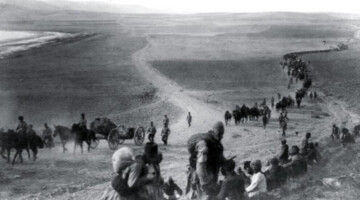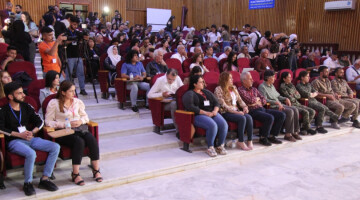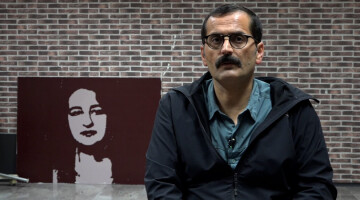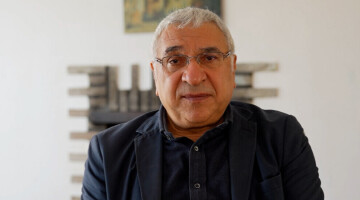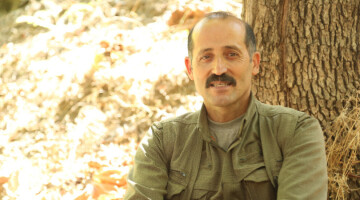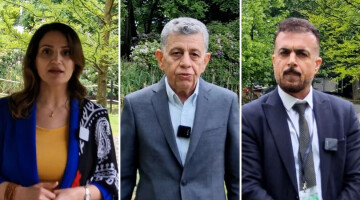Lawyer Patrick Kroker said that crimes against humanity were committed in Afrin, criticized the silence of prosecutors regarding the prosecution of the perpetrators, and said that the international judiciary remained blind to crimes against Kurds.
Patrick Kroker is a registered lawyer in Berlin and works at the European Center for Constitutional and Human Rights (ECCHR) in the International Crimes and Accountability program, where he is responsible for ECCHR’s work on Syria.
Since 2018, armed militias with the support of Turkey have been committing crimes under international law in Afrin in northern Syria. To address these crimes, the human rights organizations the European Center for Constitutional and Human Rights (ECCHR) and Syrians for Truth and Justice (STJ) have filed a criminal complaint with the German Federal Public Prosecutor's Office.
Six years ago, in January 2018, Turkey and allied armed militias of the Syrian National Army (SNA) began bombing the Afrin region as part of the so-called "Olive Branch" military operation. The military offensive lasted over two months and led to the displacement of more than 300,000 civilians, the majority of whom were Kurds. With the support of Turkey, the armed militias established an arbitrary rule that continues to this day.
Since 2018, Turkey and Salafist militants who are related to and backed by Turkey have occupied the Afrin areas. Due to this occupation, there have been many crimes against the Afrin population. Has there been legal application/recourse to prosecute the Turkish state and its Salafist militants?
As far as we know, there hasn’t been any legal recourse to prosecute any of the perpetrators of these crimes in Afrin since the military operation "Olive Branch" in 2018, neither Turkish officials nor their allied militias.
The deafening silence of international prosecutors on these atrocities was one of the reasons why we, together with six survivors and our partners Syrians for Truth and Justice, filed the complaint. In our view the violations against the predominantly Kurdish population of Afrin are definitely among the most serious crimes being committed in Syria.
So far we’ve seen investigations against Islamist armed groups like al-Nusra and Daesh, and also against regime officials. But there’s a huge gap when it comes to the crimes in northern Syria, which is the blind spot of these investigations. We think this is unjust and also unjustified because crimes against humanity are being committed.
Can you tell us a little bit about how the procedure will work?
The German authorities were the first in Europe to open a “structural investigation” related to Syria. There are two ongoing structural investigations with the German Federal Prosecutor’s Office: The first, initiated in September 2011, covers crimes committed by the Assad regime and the other one, opened in August 2014, basically covers all other non-state armed actors in Syria, so it’s a very broad investigation.
The criminal complaint that we’ve filed with the federal prosecutor on 18 January would now fall under this second structural investigation. It’s a first step. We cannot investigate in criminal law terms. What we are doing with our criminal complaint is offering evidence to the federal prosecutor and demanding an investigation. We hope that the prosecutor will accept this evidence, start questioning the witnesses and analyse all the information we have submitted.
In the complaint, we’ve named six perpetrators from the four most notorious militias operating in the region operating under the umbrella of the Syrian National Army (SNA), specifically the Al-Hamza Division, the Ahrar al-Sharqiya, the Sultan Murad Division and the
Suleiman Shah Brigade. So, if they are able to identify any specific perpetrators they could - and we believe they should - open an investigation against those specific individuals. In case they find enough evidence against them, this could even lead to arrest warrants against them. That would be our hope.
There can be no trial in absentia of the suspect in Germany. But with an international arrest warrant, they can at least be arrested easily, even if they travel to countries that have legal assistance and extradition treaties with Germany. Although it’s still very uncertain, the German federal prosecutor should be alert and prepared for this moment.
Can you talk about your accusation against the Turkish forces and the Salafist militants affiliated with them?
In our complaint we focus on the leaders of the Turkish-backed militias who have been systematically committing atrocities in the Afrin region since 2018, resulting in the widespread displacement of the local population. They are committing these crimes with the support and knowledge of Turkey, but the militias are at the centre of this complaint. This is because they are taking place in the Kurdish region of Syria and therefore, in our understanding, they are also a clear part of the ongoing "Syria" structural investigations, which, as we know, deal with international crimes committed on Syrian territory.
What exactly are the types of crimes the Turkish state is accused of?
The crimes committed by the Turkish-backed militias in Afrin are the systematic expulsion and looting of thousands of homes and agricultural fields of the mainly Kurdish population in Afrin and neighbouring districts. Residents are being illegaly arrested and detained. They are subjected to torture, enforced disappearance and sexualized violence. By imposing arbitrary rule, the militias have created a climate of fear and terror that has led to the ongoing displacement of the Kurdish population. These international crimes, which began with the invasion six years ago, continue to this day.

